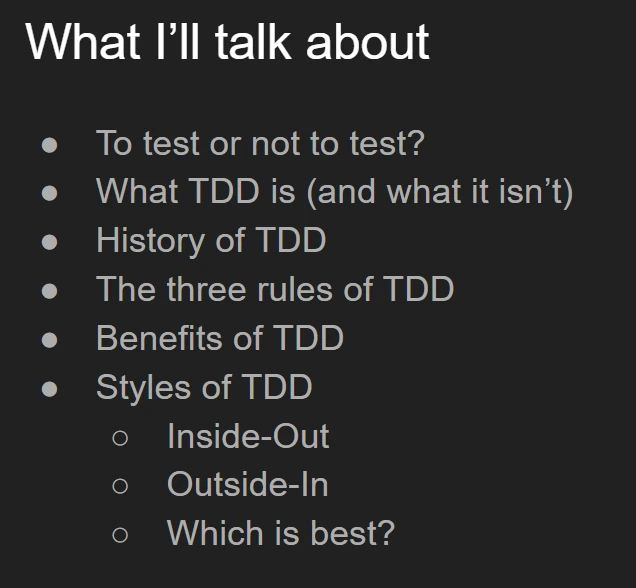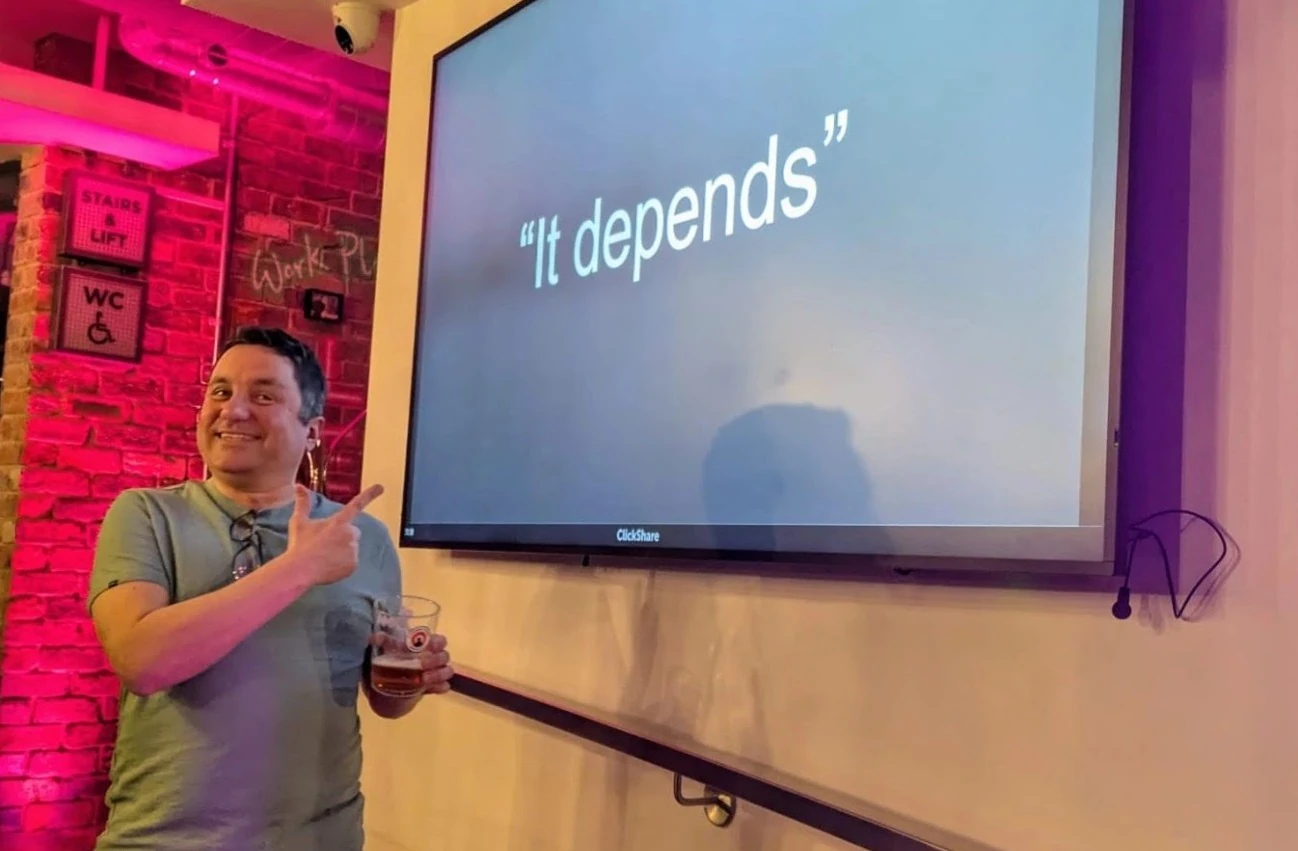How tech communities benefit you and everyone else
- 5 minutes read - 1065 wordsWhat are tech communities?
A tech community is just a group of like-minded people who have a common interest and want to connect and share and learn. That common interest could be something quite specific, like a particular piece of tech, or something broader, like “anything to do with software development”.
A tech community can take many forms:
- online forums
- open-source projects
- social media groups
- professional associations
- physical meetups and/or conferences
- hackathons or coding events
- etc.
What are the benefits?
Connecting with other people who are willing to share and learn about a common interest can have massive benefits. For example:
Knowledge sharing and learning
The most obvious benefit is getting access to more people than you do in your normal day-to-day work. People have different experience, different approaches, different challenges, and work in different environments. You can learn a lot from that simply by looking to apply that new knowledge in your own work or just as a springboard into your own deeper research and learning. And, of course, it works both ways; people can learn from you too!
Networking
By connecting with other people who share your interest, you can open all sorts of potential opportunities: insights into different careers paths; job opportunities; access to advice or a mentor; uncover sales opportunities; the list goes on…
Support and advice
You may be able to connect to someone who can act as a mentor and give advice and help you in your career. It can obviously work the other way as well; the mentor-mentee relationship is a two-way street, and you can often gain as much from the other side as well.
Physical meetups
For me, the most recent and impactful tech community experience has been as part of a new meetup. These are usually relatively local events where people meet in some shared space such as a conference room, bar function room or the offices of a tame employer.
They usually run during the evening and are informal affairs, often including a beer or two. Or more. As someone who has primarily worked from home for the past 5 years, these physical meetups have all the benefits I listed above, but you also get to leave the home office behind and meet new people in 3-dimensions!
Giving a talk at WARKS.DEV
My local tech meetup is WARKS.DEV. It is quite new and is a general “tech and developer” meetup held once a quarter. Attendance is on the rise with upwards of 60 people last time. There is a chance for networking, socialising as well as two talks per meetup on any topic related to “tech and dev”. All abilities are welcome and everyone is friendly and willing to share and learn.
My TDD talk
I had the opportunity to give a talk at WARKS.DEV in February and really enjoyed the experience. The title was “Test-Driven Development: Inside-Out vs. Outside-In”. It was aimed at devs of all abilities and, as there was a bar in the room, quite informal.

What I learned from giving my talk
Have a topic you know about
Obviously, you need to know what you are talking about. You don’t have to be a world-expert on it, but you do need some knowledge. Be honest. If you don’t know then say so, it’s not a problem.
- “That is my understanding, but I’m happy to hear other opinions”
- “I got this far so I would love to hear from anyone who got further”
- Etc.
Know your audience
The talk I gave was for all abilities of developer and was given in an informal setting, so I could make it a bit more relaxed and fun (relatively speaking). If I was to repeat the talk in the workplace or to a more experienced audience that I would adapt it accordingly.
Practice, practice, practice
This depends on what works best for you. Personally I do like some practice, but not obsessively so. I find with some practice my delivery is smoother, with less “uhems” and “errs” coming out of my mouth. This gives me more confidence when the time comes. I also find that hearing myself deliver the content helps refine what I say and I will change what I say as I practice, to get to something I am happy with. Lastly, it obviously helps with the timing of your talk - you generally have a time limit!
Be prepared for technical mishaps
This happened to me and added a bit more stress but also gave an opportunity for a bit of humour. I had quite a lot of content so I was relying on the “presenter notes” in the slide deck. However, the way the screen sharing worked in the venue meant that everyone would see my notes as well. Not ideal. So I had my notes on my phone in one hand, the microphone in the other and the glamorous Adam Farrell (organiser of WARKS.DEV) doing previous/next on the slides.
In the end it worked out fine and actually helped the talk, so don’t stress it, roll with it instead.
Relax
A lot of people probably won’t ever give a talk at a meetup for their own reasons, so the fact that you are doing it is great! And brave! It will be appreciated and it is often the lifeblood of these meetups.
People will either think:
- “I couldn’t get up there and do that, so well done”, or
- “I do talks and I understand what it takes, so well done”
Be open and honest
You only know what you know. Other people may have a different opinion and that’s fine. Maybe they are right, maybe you are. Maybe both or neither of you are. Questions and different opinions are not a threat.
Whatever happens, learn from it
The more talks you do, the easier it will become, and the better you will get at delivering them.
Where can I find tech meetups?
A great starting point is meetup.com. You can search by keyword, type, location and distance, and it will also suggest other, similar meetups that are related.
Summary
Tech communities are a great way to meet new people, learn new things and share your knowledge. Give them a try, the more you engage then the more you will get out of them.
And to answer the question “Inside-Out vs. Outside-In, which is best?”. The answer is, of course…
